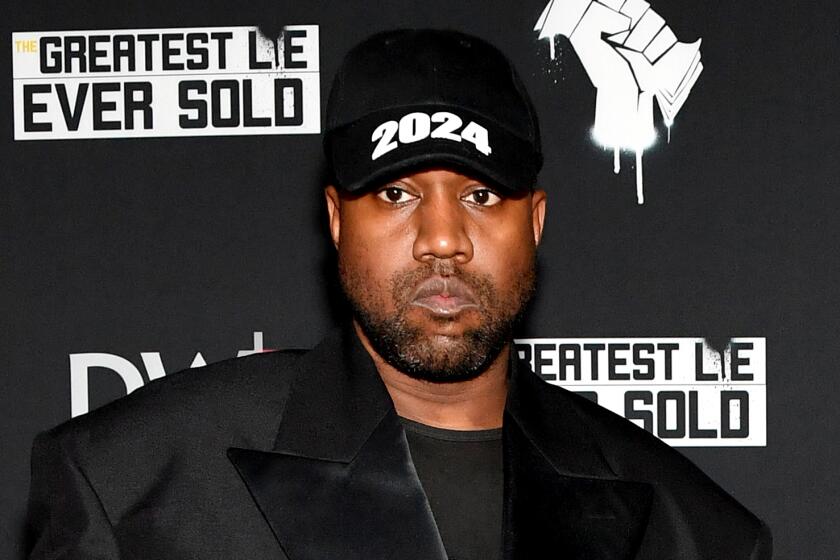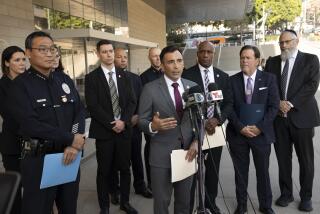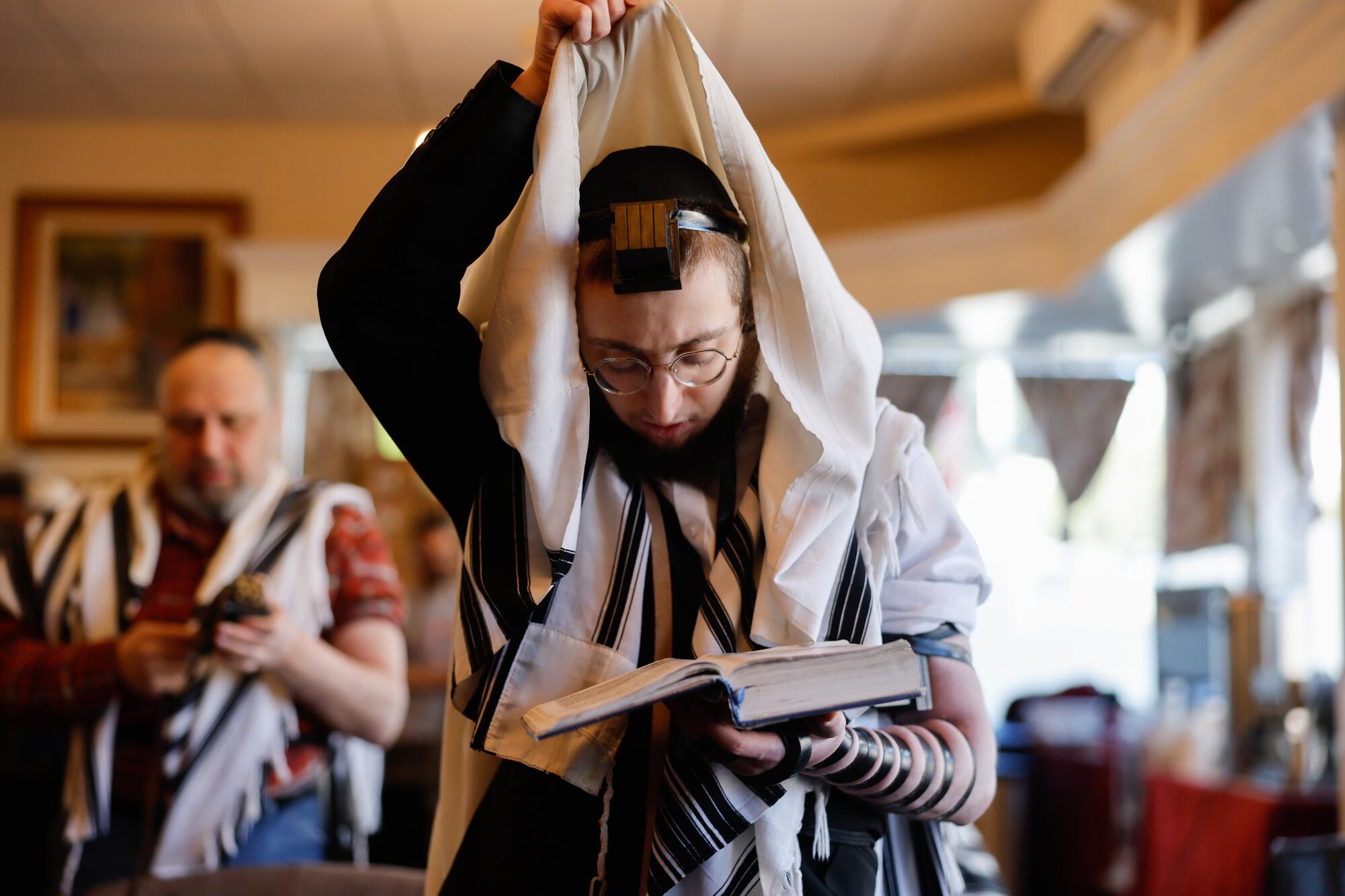
- Share via
SAN FRANCISCO — Rabbi Bentziyon Pil’s storefront synagogue is easy to miss, just a corner shop with boxes of halvah stacked in the window.
But local prosecutors say Dmitri Mishin knew it was a gathering place for Jewish emigrés who fled the Soviet Union decades ago to escape religious persecution. He lives nearby, and is Russian himself.
After dark on Feb. 1, in a scene captured on surveillance video, a man authorities have identified as Mishin pushed open the unlocked door and entered the synagogue’s single worship room, where a dozen people were sitting at a long table covered in plastic. Pil greeted him, thinking the man had come to join them.
Within seconds he pulled a gun. He struggled to cock it, then began firing, first toward the Torah and then toward the men — eight blasts marked by the flare of the muzzle.
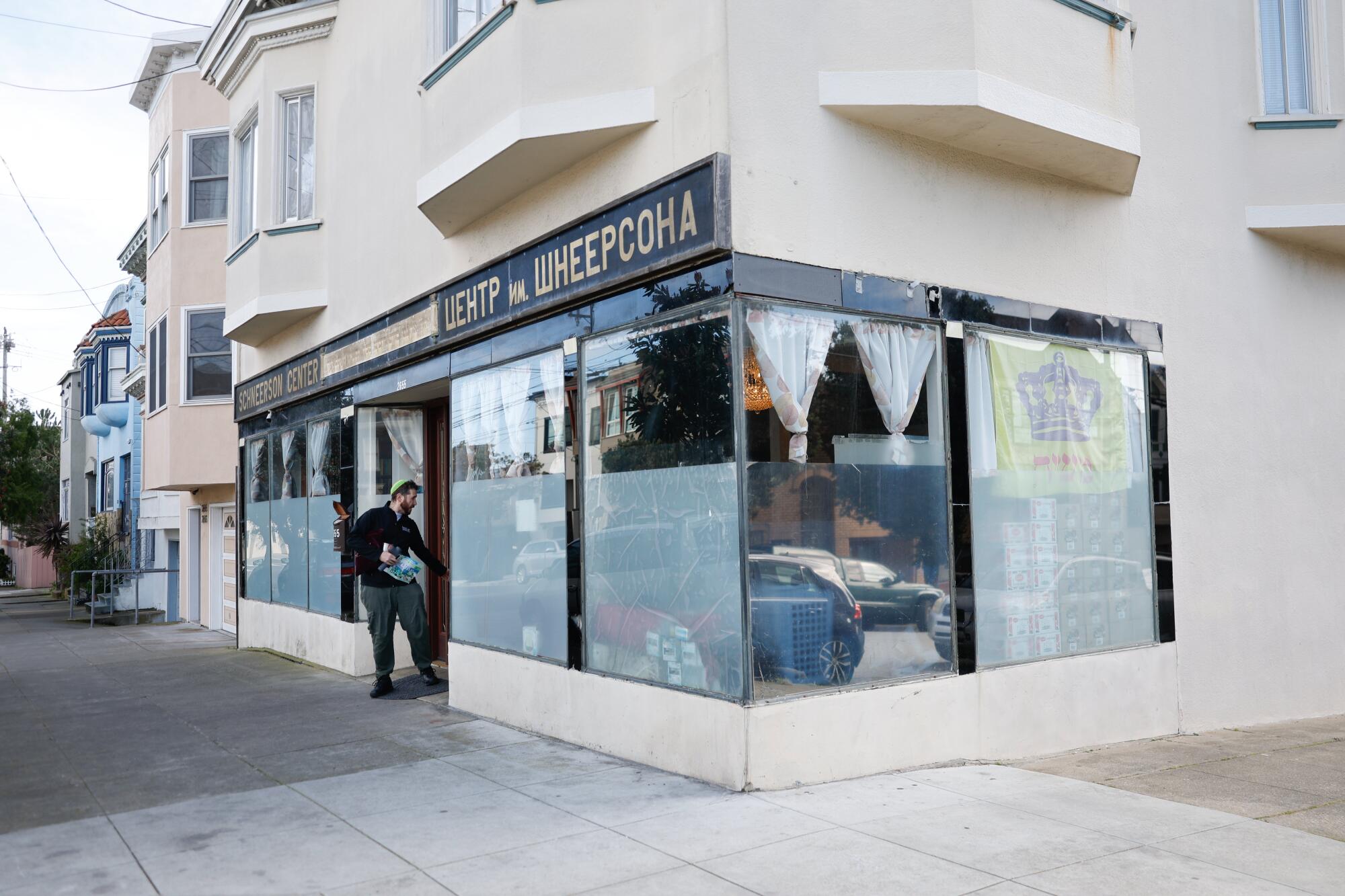
The gun turned out to be a replica, firing something like blanks. But the men in the room didn’t know that.
The attack was so sudden, so unexpected, that none of the congregants reacted. No one ducked, no one screamed. The surveillance video has gone viral. But not because the violence is shocking. Instead, people are watching because it is almost funny how calm the congregants seem.
Of course, there is nothing humorous in this assault. But such incidents have become so common that this one barely made headlines outside San Francisco. Just another alleged hate crime in a surging tide of them, unremarkable without deaths to count.
In our polarized country where extremism is being mainstreamed, we are becoming desensitized to anything but the most egregious acts of hate.
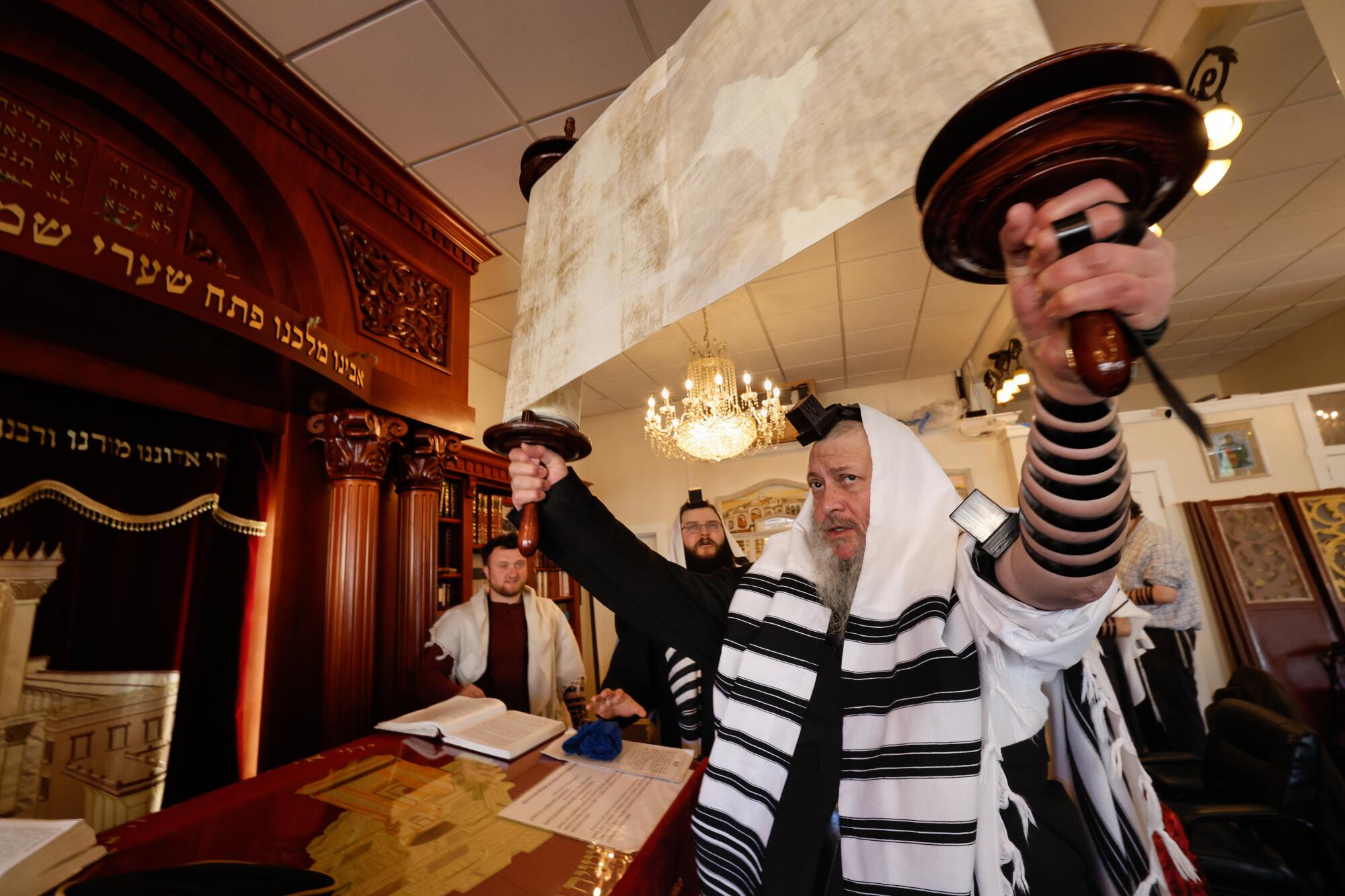
In recent weeks, a man was accused of shooting and injuring two Jewish men outside their synagogues in a predominantly Jewish neighborhood of Los Angeles. He’s been charged with federal hate crimes. In New Jersey, a man was charged with firebombing a synagogue. In Redding in Northern California and Brownstown Township in Michigan, residents found antisemitic fliers left at their homes.
On Feb. 15, a Quincy, Mass., man was indicted on federal charges for allegedly striking an Asian man with his car after saying, “Go back to China.” That same week in San Francisco, a man was caught on video throwing eggs at an Asian woman on a Muni bus after yelling racial slurs.
And Saturday, white supremacists staged a “National Day of Hate” targeting Jewish people, advertising a call for vandalism on social media.
That’s all in a couple of weeks, and not every hate incident I could find. Few made news outside of local press.
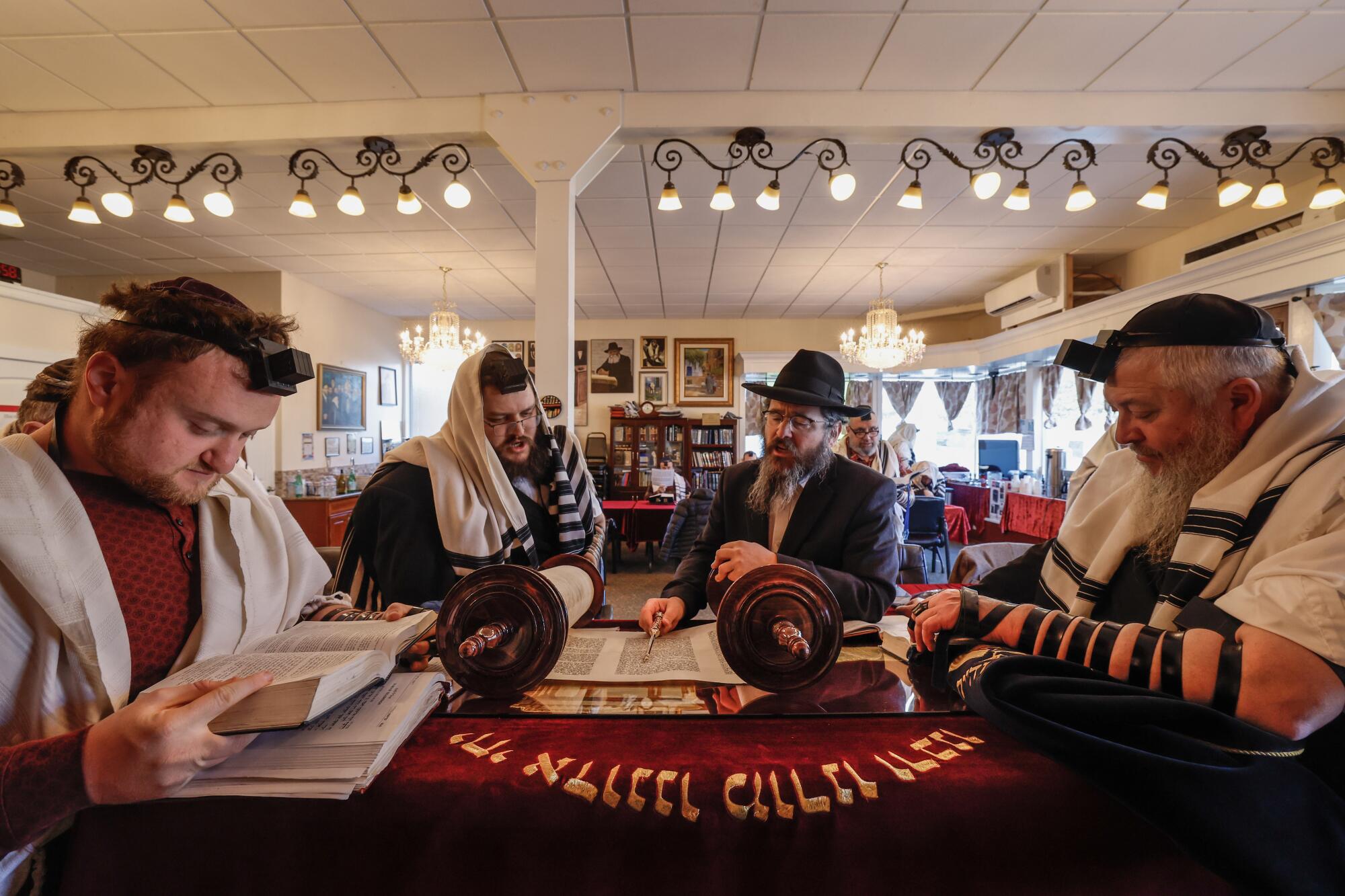
Pil and his congregants were so certain no one would care what had happened to them, that the shooter would not face real consequences, that they didn’t even call police that night. Instead, they picked up what looked like shell casings and put them in a junk drawer.
::
Underneath the brim of his black hat, Pil has a smile that reaches his eyes, lively and kind.
And tired. Since the shooting, bad dreams wake him.
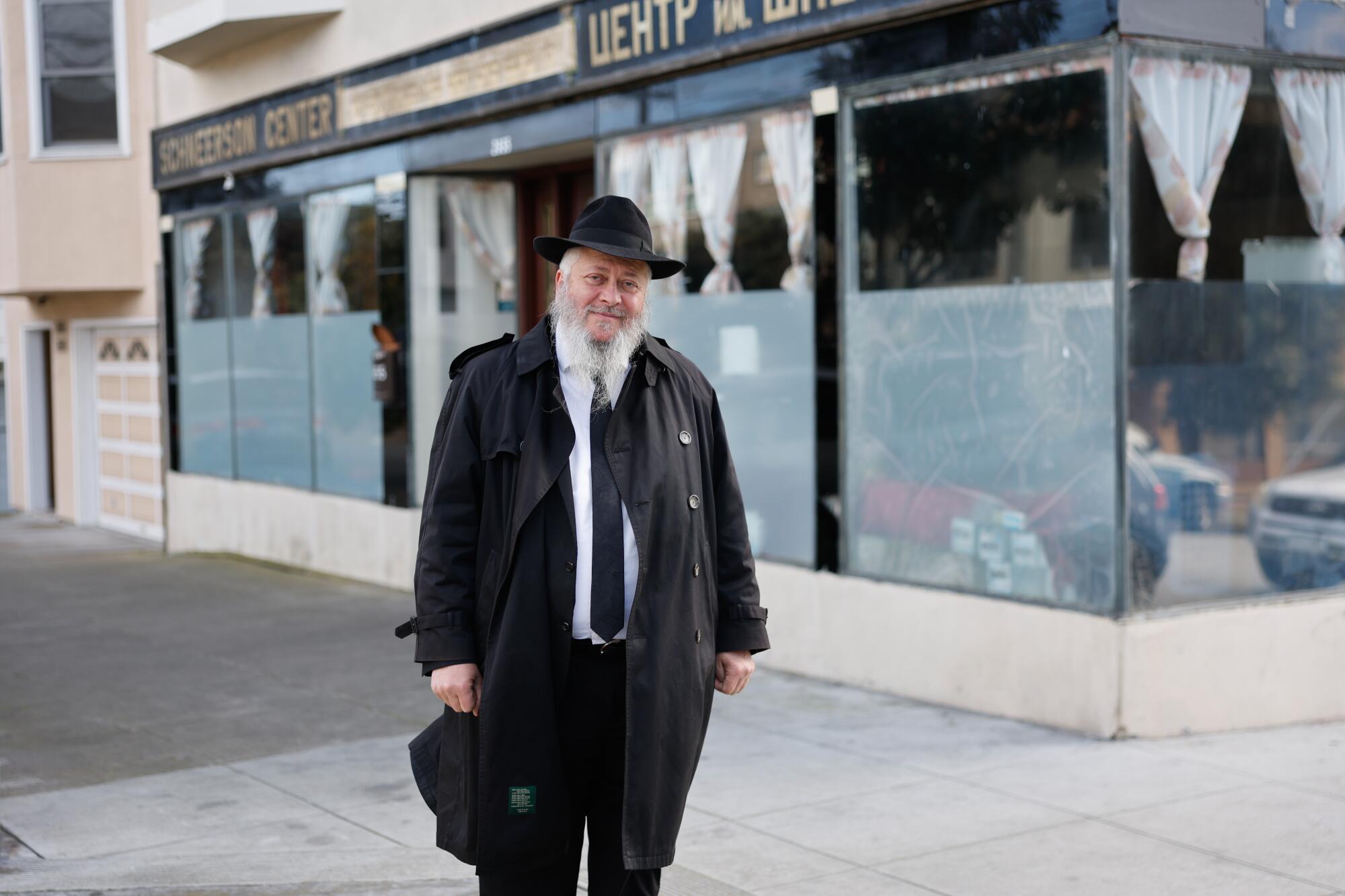
When Pil was a child in Samarkand, an ancient Silk Road city in Uzbekistan, he was part of an underground synagogue. Being Jewish was not safe, and each Shabbat, his family would go to a different house to observe, pretending the gatherings were birthdays or parties.
He remembers stories of elders sent to Siberian prison camps for their faith and a persistent fear that a KGB “snitch” was somewhere in their midst. His family moved to Israel when he was 15, and later he came to New York, to the Jewish enclave of Crown Heights, to study.
One day, his brother-in-law and his brother-in-law’s brother saw a girl at a wedding and thought she’d be a good match for Pil because she never stopped dancing. Pil loves to dance. Mattie was her name, and she thought Pil would be a good match, too — they shared values, she said, and a desire to help others.
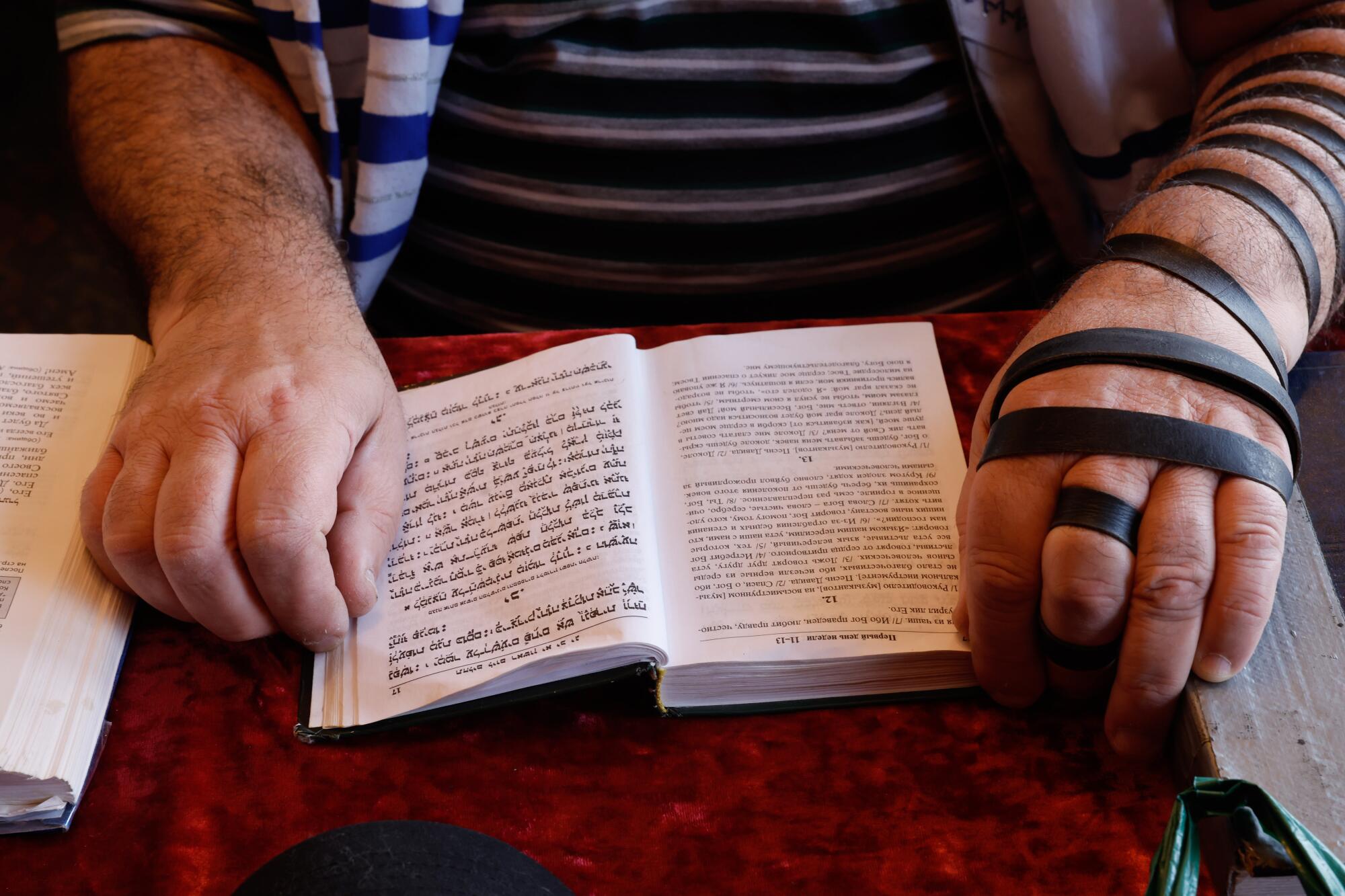
They courted and married and moved to San Francisco in 1983, where there was no synagogue for Russian Jews, Pil said. So they started a community out of their house, living upstairs and holding Shabbat dinners downstairs. In between having kids — there are 10 of them — they fed those in need and created a connection for scattered immigrants who had long felt isolated.
Sometimes the line to get in ran out the door because there wasn’t enough room to sit inside. The neighbors didn’t love it. Thirteen years ago, after a few other stops, they moved to this location.
It’s small, the size of a school classroom, with three crystal chandeliers more suitable to a ballroom hanging overhead and a faded floral carpet underneath. The Torah is on one side; the other side holds the table where the men were sitting when the shooter came, the closest chair just a foot from the door.
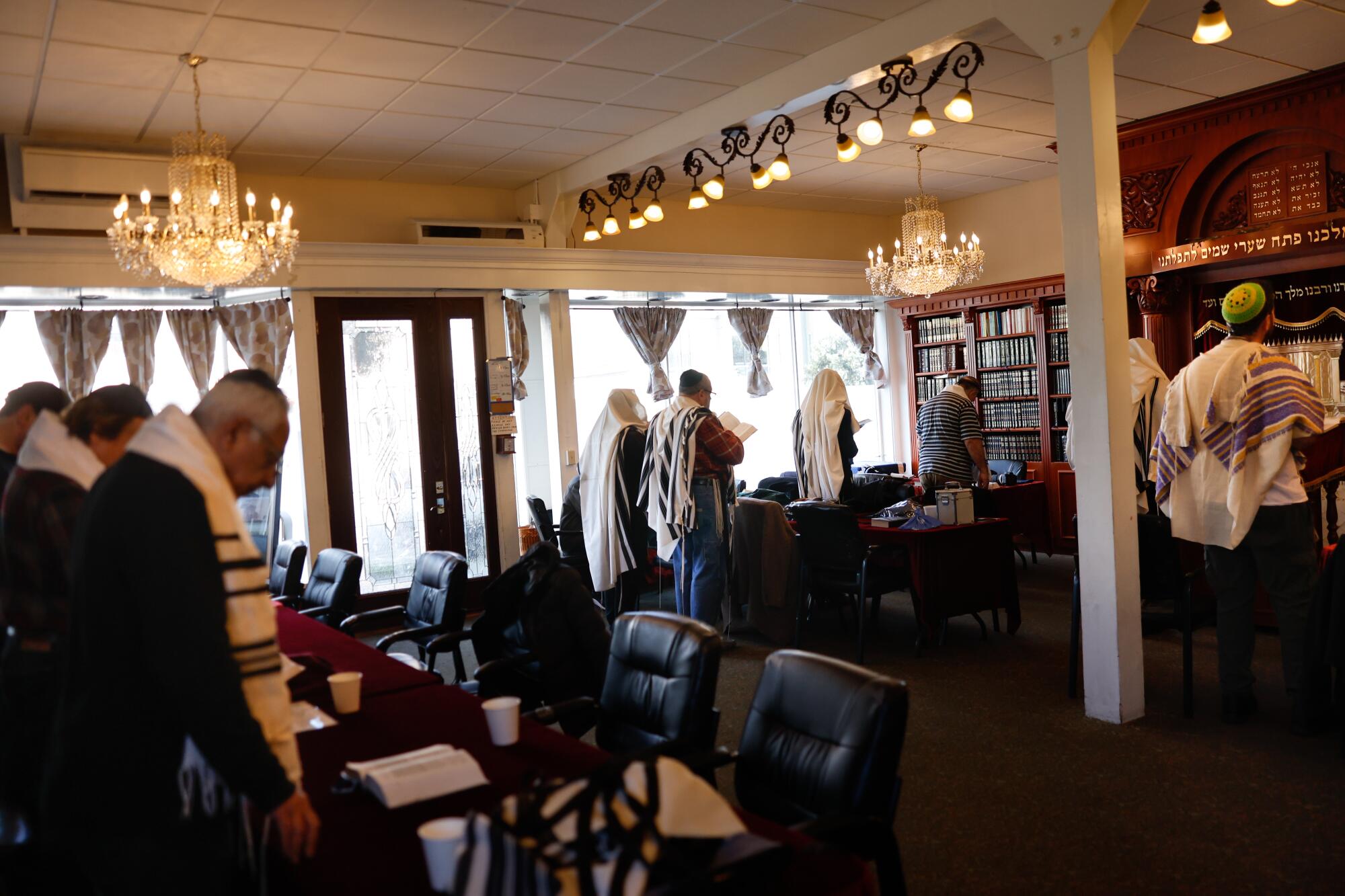
With its clutter — hundreds of books, two faux stone sinks, a coffee station, a boombox, a laundry basket, stacked chairs — it’s a welcoming space infused with a sense of community. And sacredness. Despite its humbleness, it has that enigmatic sanctity of a place of worship, a feeling that a power greater than humans sometimes drops by.
Pil makes sure that every day, morning and night, a minyan — a quorum of 10 men necessary for Orthodox Jews to hold certain prayers — is present. It’s no easy task to round up 10 men twice a day, and Pil is known for his relentless phone calls.
But the reliability of that minyan makes the congregation vital beyond its regular members. People come from all over to take part in communal prayers, such as the honoring of the dead or the Birkat HaGomel, recited after recovering from illness or passing through a dangerous journey.
Even in the wake of the shooting, Pil found his 10.
Aaron Seruya, a congregant from Gibraltar, is often one of them. “It’s up to us to fight back and think positive and have more faith in God,” he said.
This is the strength Mattie Pil and the rabbi have built with 40 years of their patience and love.
This is what the shooter could have broken with his toy gun and hate.
::
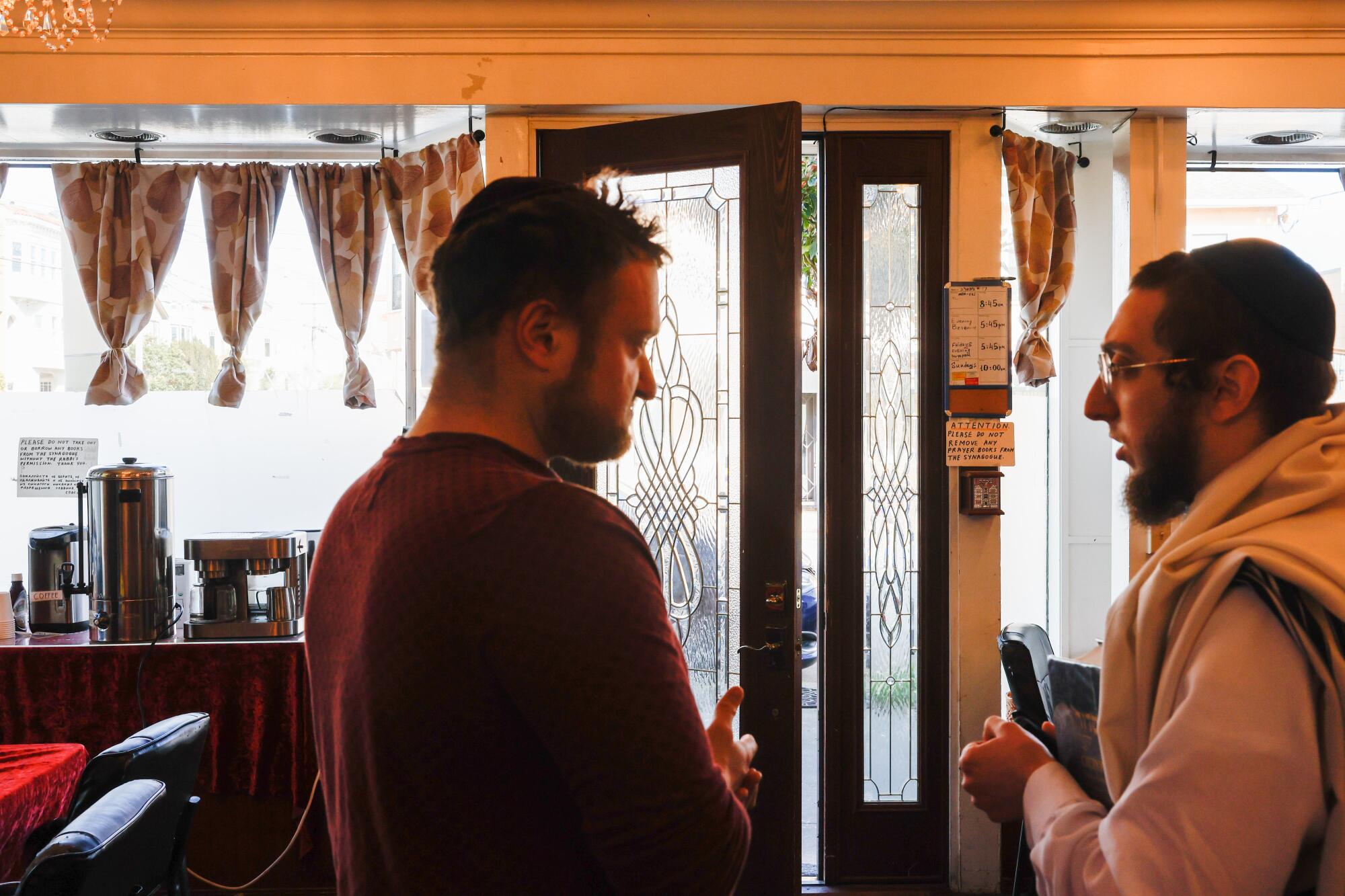
The day after the shooting, Junior Rabbi Alon Chanukov called the police.
Chanukov, 35, is younger than most of the congregation. He was raised in the Chabad of Poway, north of San Diego, where on the last day of Passover in 2019, a man with an AR-15 killed one woman and injured three others, including the rabbi. Chanukov knew the woman who was killed.
When he heard about the shooting here, he was so upset he couldn’t do his morning prayers. Against advice, he released the shul’s surveillance footage. He wanted the shooter caught, to make sure it wasn’t “treated as just like a nothing,” he said.
And on the Friday evening after the shooting, the shul received some good news just as it began celebrating Shabbat. A Jewish police officer came by to tell them Mishin was in custody. “So you guys can rest easy,” Seruya remembers him saying.
They did for a bit, until they saw Mishin’s social media feed, where he had posted an image of himself in a Nazi uniform and a video of what looked like him burning something outside the synagogue days before the attack. It left them with no doubt that they were targeted.
San Francisco Dist. Atty. Brooke Jenkins promised a “zero tolerance for hate” in a news release about the case, and has filed hate crime charges against Mishin. He is facing two felony counts of interference with religious worship and six misdemeanor counts that include the violation of drawing or exhibiting an imitation firearm. If convicted, he could face up to 10 years, according to the district attorney’s office.
Mishin pleaded not guilty at his arraignment. There are questions about his mental health, and a preliminary hearing is scheduled for Friday. Pil and his congregants fear he will be released and retaliate against them — maybe with a real gun.
Times columnists Erika D. Smith and Anita Chabria take a look ahead after a year that brought multicultural extremism and hate into the public eye.
The shul has applied for state funds, put in place after Poway, that would help pay for a security guard and other safety measures. But the truth is this building, with its big glass windows and one main exit, will never be safe. Chanukov can no longer sit with his back to the door, worried who will enter.
The congregation wants to move and has started a GoFundMe to raise the $400,000 it thinks it will need, but Chanukov doesn’t know if it will happen. The people who worship here are of modest means.
“We don’t have Mark Zuckerberg as one of our donors,” he said.
In the meantime, the life of the shul goes on. The minyan meets, the women cook for Shabbat. The men smoke on the sidewalk out front, the candles are lit on Friday night.
“Jews don’t give up,” Mattie Pil said.
They don’t know if anyone cares what happened here, but Mattie hopes they do.
“It’s not about God, it’s about oneness,” she told me. “About us being together as one.”
Really, the concern should not solely be about Mishin, not at this chaotic moment when hate is everywhere. It’s about what makes the Mishins, what allows them to go unnoticed or unchecked until the gun, real or not, is in their hands. Most of us aren’t indifferent to hate, and we feel it growing. We just parse it in our own minds — racism, misogyny, anti-trans, anti-Asian, antisemitic — and save our outrage for what hits closest.
But hate in any form isn’t just a threat to lives. It menaces the democracy we all share.
And as Rabbi Pil told me, it’s the one thing we can’t tolerate.
More to Read
Sign up for Essential California
The most important California stories and recommendations in your inbox every morning.
You may occasionally receive promotional content from the Los Angeles Times.
